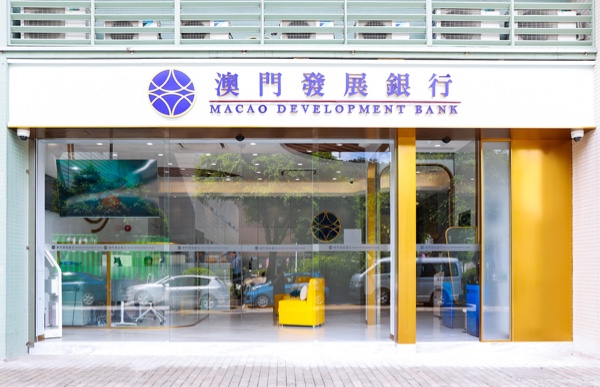Special Report – COVID-19, a blessing in disguise for FinTech
2023 could be the year when finance and technology meet fruitfully in Macau
Macao Business | February 2023 | Special Report | Digital Macau
“Macau’s FinTech sector is young and has entered a phase of rapid growth,” Vincent Tse, Vice President of the Macau AI & Blockchain Institute, told Macau Business.
This expert justifies his idea with the following argument: “Mobile payments are increasingly used, and cross-bank transactions are becoming popular.”
Furthermore, “COVID-19 had accelerated e-transactions, and therefore the development of FinTech.”
Another expert consulted by Macau Business, Noah Tang, also sees good prospects.
“Macau is a micro-economy with a relatively simple financial structure. Traditional financial products have basically met the needs of businesses and residents in Macau. At present, Macau considers modern finance as a key industry. The Trust Law has been announced. Private equity funds are the development direction of the financial industry. It can be predicted that this will accelerate the development of the local FinTech sector, says Noah Tang, president of the Macao Doctoral Think Tank.
But “FinTech talent development must be strengthened. Due to the small population, and thus small amounts of data, it is not easy to use AI, explains Vincent Tse.
Vincent Tse has high hopes for the project that the Micro Connect Financial Assets Exchange will create, which will start operations in Macau this quarter.
According to the Hong Kong-based company, the aim is to develop a new financial market platform “to offer global investors unprecedented access to China’s real economy with a new asset class – Daily Revenue Contract Certificates, or DRCCs. DRCC represents rights to daily revenue shares from micro and small businesses in China’s physical consumer economy.”
“The transaction platform is blockchain-based and smart contracts will be used. This should help accelerate the adoption of blockchain and smart contracts in finance in Macau,” Tse predicts.
So, “Macau is in a good position to develop cross-border finance,” said the Vice President of the Macau AI & Blockchain Institute.
These are also the plans of the local financial regulator, the Monetary Authority of Macau (AMCM).
“AMCM, together with the industry, is opening up new growth areas for the financial market, especially in the bond market, wealth management and cross-border finance,” the watchdog replied to Macau Business.
But this must be done with “prudence”, the word used by AMCM, “in response to the development of the digital economy.”
Financial institutions must apply to the AMCM before launching new services, including services that use FinTech. Macau Cybersecurity Law and relevant regulations, together with AMCM’s “Guideline on Risk Management of Electronic Banking”, “Guideline on Cyber Resilience”, “Guideline on Business Continuity Management” and “Guideline on Cyber Resilience for Insurance Sector”, ” provides a basis for regulating financial institutions’ FinTech adoption”, the regulator has specified.
“FinTech talent development must be strengthened. Due to the small population, and thus small amounts of data, the use of AI is not easy.” – Vincent Tse

“To further promote FinTech adoption, the AMCM has revised the Finance Act to introduce a temporary licensing regime that allows qualified entities (such as technology companies, academic or research and development institutions) to carry out testing on financial technology projects with proper risk control within an approved period,” continued according to the Norwegian Monetary Authority The Act is currently being considered by the Legislative Assembly.
This temporary licensing regime appears to be consistent with what has been done in Hong Kong, where the sector is much more developed.
Tse explained to Macau Business that “there are a few things Macau can learn from the Hong Kong Monetary Authority (HKMA).
For example, The FinTech Supervisory Sandbox, launched by the HKMA in 2016, allows banks and their partnering technology firms to pilot their FinTech initiatives involving a limited number of participating clients “without the need to achieve full compliance with the HKMA’s supervisory requirements. This arrangement makes enabling banks and technology firms to collect data and feedback from users to improve their new initiatives, thereby speeding up the launch of new technology products and reducing development costs.”
Another example is the HKMA’s FinTech Supervisory Chatroom, “which provides feedback to banks and technology firms at an early stage of their fintech projects.”
The HKMA also established a FinTech Facilitation Office in 2016 “to facilitate the healthy development of the FinTech ecosystem in Hong Kong and promote Hong Kong’s fintech development. AMCM may consider a similar setup,” advises the Vice President of the Macau AI & Blockchain Institute.
The first local FinTech bank?

The Macao Development Bank (MDB), which has been operating since 2019, presented itself with “a sustainable development strategy using new financial technology.”
In its first financial report, MDB assumed that “the main objective (…) is to maintain dominance in financial technology (‘FinTech’), and develop the bank into an electronic financial platform for customers. The bank will invest intensively in electronic equipment and IT equipment, using financial technology (‘FinTech’) as the main means of offering electronic services in the future.”
What those in charge of the bank certainly did not expect was the three-year-long COVID-19 pandemic, which meant that only MBD’s first six months were pandemic-free.
Previous | A technology-driven market


